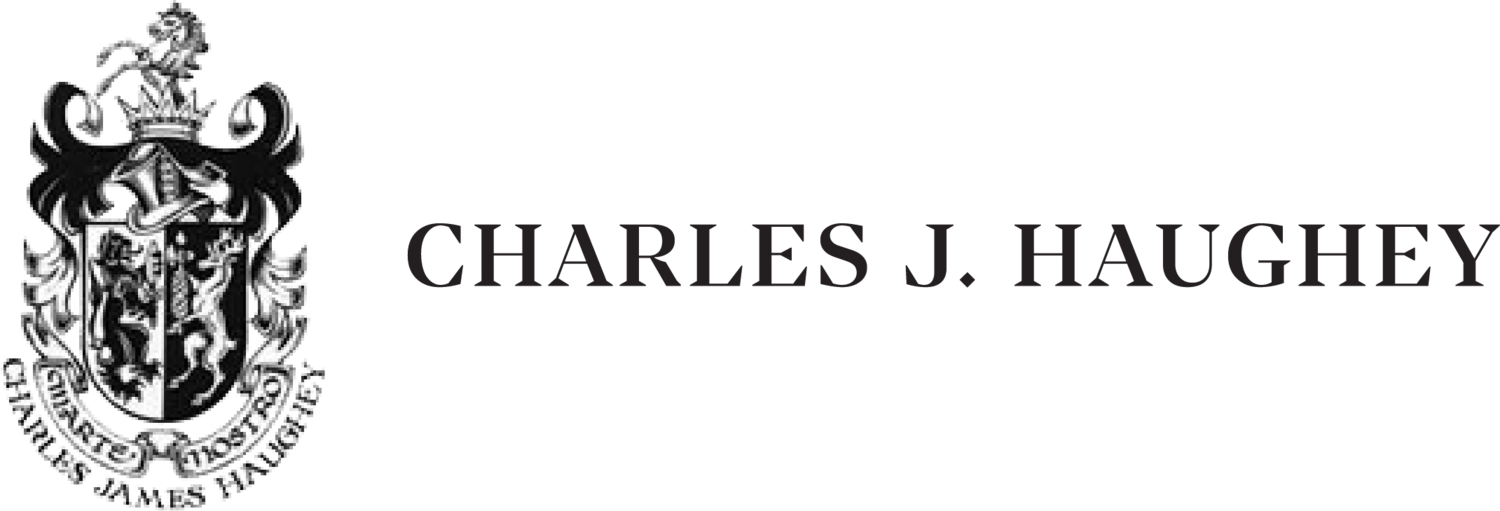Charles Haughey
written by James Morrisey
On a crisp February morning in 1987 I found myself seated on a helicopter beside Charlie Haughey, then Fianna Fáil leader, en route from Dublin to Killybegs.
He was scheduled to launch the party's fisheries policy in advance of the general election called the previous month by the Taoiseach Dr Garret Fitzgerald.
If there was a morning to see Ireland from the air this was one of them. Charlie read The Irish Press while I dedicated myself to The Irish Independent, my then place of employment. Papers read, my fellow passenger stared out the small window for what seemed like an age.
"Don't we live in a beautiful country?" Charlie remarked rhetorically.
Photo credit https://www.rollingnews.ie/p/press/asset/102475
It was an insight to man who many regarded as an enigma. It was also the first of many conversations I would have with CJH in coming years...well removed from the well-worn, trampled path of politics.
From the time he retired in 1992 I got to know Charlie particularly well. In around 2000 I started researching a history of the Fastnet lighthouse and during a visit to Abbeville I mentioned this project. Within a matter of days he phoned with a list of contacts and sources who he thought could be of assistance. In particular, he identified Capt. Owen Deignan, retired inspector of lights and marine superintendent, as a particularly important source.
The book was born in late 2004 and my first port of call with a copy was Kinsealy. It was a Saturday morning and CJH was in the company of a number of visitors but he insisted on breaking up the conversation and hosted a celebration of the new tome.
Charlie was a wonderful conversationalist, primarly because of his knowledge of diverse topics. But I always felt that the glue that bound them all together was Ireland. He was criticised for buying Innisvickillaun but I think it is worth noting that privately owned Irish islands could be purchased for a pittance for decades. And the work of making Innisvickillaun habitable provided local employment. The story of how some of the workmen found theselves stranded there during particularly bad weather and were forced to survive on some fine wines is still part of the folklore of Dingle and its environs...
Charlie was a wonderful conversationalist, primarly because of his knowledge of diverse topics. But I always felt that the glue that bound them all together was Ireland.
The islands of Ireland held a special interest and there was also a frisson of excitement when Celtic Mist anchored off. He was fascinated by the exceptionally rich history of High Island, brought to his attention by its owner, poet Richard Murphy. He enjoyed a drink in the sheebeen on Inishark in the company of John and Delia Concannon. He returned some years later to 'switch on the electricity' for the island, one of the last locations in Ireland to be provided with power by the ESB.
He was a great supporter of the arts in Ireland and young artists rarely left his company without a hand on the shoulder and emotional words of encouragement. In the 1960s a young man from Claremorris was eager to forsake conventional emplopyment and become a sculptor. But while riddled with uncertainty he happened to meet with CJH who urged him to follow his dream. That was Eddie Delaney, later to become one of Ireland's foremost artists.
Visiting Abbeville was always enjoyable, engaging and entertaining. Even when seriously ill, I found Charlie to be stoical yet upbeat, accepting yet positive, courteous and engaging.
But it was our discussions about bees and beekeeping that I found the most riveting. We exchanged news swarms and swarming, why the global bee population was in decline and the ingenuity of bees in their pursuit of pollen and the harvesting of honey. We also argued about whether bees drank water or sourced their liquid requirements from plants and flowers...
I still have a jar of Abbeville honey, sealed with beeswax.
The honey and the memories remain preserved.

